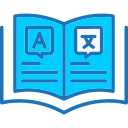AI-Powered Feedback and Personalization
Instead of only marking errors, AI can suggest clearer phrasing and explain why one verb tense fits better than another. Learners build intuition faster when corrections arrive immediately and explanations are concrete, friendly, and specific.
AI-Powered Feedback and Personalization
Adaptive practice adjusts difficulty as confidence grows, preventing boredom and overwhelm. Think of it like a language coach that notices patterns, offers targeted drills, and celebrates incremental wins that might otherwise go unnoticed.









